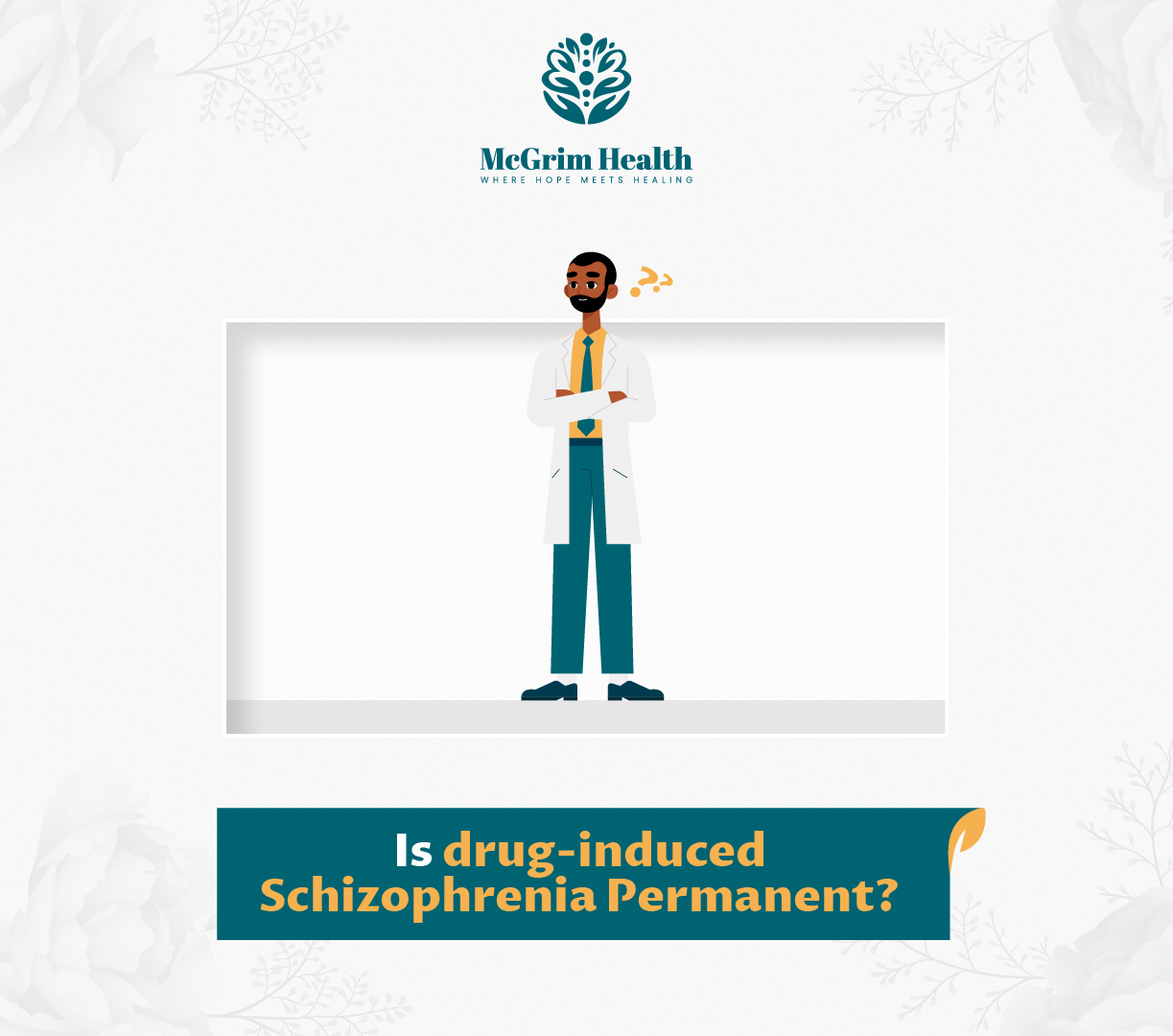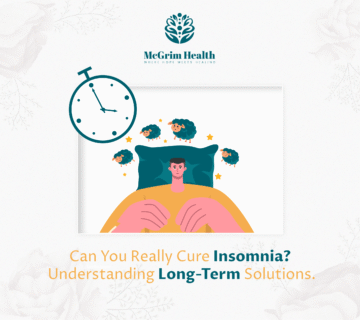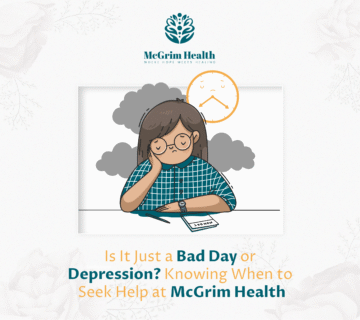When it comes to mental health, the path to understanding and managing conditions can be as winding as the conditions are complex.
One of the most difficult topics for people with this condition is drug-induced schizophrenia.
The increasing amount of misused substances has resulted in many questions about its consequences such as probably inducing schizophrenia.
However, after this disease sets in, one question persists: Is drug-induced schizophrenia permanent?
What is Drug-Induced Schizophrenia?
Before we talk about whether or not drug-induced schizophrenia is permanent, let us define it first for you.
Schizophrenia is a serious and lifelong mental illness that affects a person’s thoughts and emotions. It is marked by delusions, hallucinations, disorganized thoughts and other cognitive dysfunctions.
More specifically, drug induced schizophrenia refers to all symptoms similar to those of schizophrenia which appear following substance use or abuse.
What Triggers It?
Drugs that induce schizophrenia can be: Marijuana, LSD, amphetamines among others including alcohol are some of the commonly associated drugs with these symptoms. They disrupt the delicate balance of chemicals in the brain, hence, may trigger symptoms similar to schizophrenia amongst some people.
Is Drug-Induced Schizophrenia Permanent?
The pressing question remains –is drug-induced schizophrenia permanent? The answer is not simply either yes or no, but depends on a number of factors including the individual’s health, the duration of substance abuse, the kind of drug used, and if there is a pre-existing vulnerability to schizophrenia and other mental illnesses.
Generally, many people experience diminishing symptoms over time particularly when they stop using drugs and undergo appropriate therapy.
However, there are some exceptions especially for heavy or long time substance abusers. Timely intervention and seeking treatment that suits you most are vital for effective management of the condition.
Treatment and Recovery
There are several approaches involved in recovering from drug-induced schizophrenia:
- Stop Using Substances: This is the first and most essential step. To recover from this disorder it is necessary to put an end to consumption of certain substances that provoke it.
- Medication: Medications may be given so as to manage these symptoms while being watchful for any side effects that could arise.
- Psychotherapy: For exampl,e cognitive behavioral therapy can be valuable in dealing with symptoms.
- Peer Support Systems: Connecting with self-help groups or community based programs will offer needed emotional and social assistance.
Restoration and Hope
Understanding the ramifications of substance abuse on mental health and its potentiality to precipitate conditions such as schizophrenia is crucial. In a stark way, this shows how important it is to use substances in moderation or not at all and seek help whenever required.
However overwhelming it may appear, especially with regards to complex disorders such as schizophrenia, hope and assistance can be found. With appropriate therapies and support, one can maneuver their way back to sanity thereby regaining much of their pre-illness quality of life.
Connect with McGrim Health
If you or your loved one is struggling with drug addiction linked to mental health problems, don’t worry because we are here for you.
Our department gives compassionate care that covers all aspects of mental health issues caused by drugs including schizophrenia. Our dedicated team is here to support you through every step of the journey.
This could be the most liberating decision in your life today; let’s connect at McGrim Health so that we can discuss ways through which we can provide support for yourself or loved ones towards brighter tomorrow.
Contact us today. Your well-being is our utmost priority. Rediscover the strength within you with McGrim Health.
FAQs
Can drug induced schizophrenia go away?
Yes, it can potentially fade away. The suitable cure might involve stopping the drug, managing medication and therapy. However, results can be different for everyone.
Can schizophrenia be drug induced?
Yes, some substances can lead to symptoms that look like schizophrenia, especially in people more likely to have psychosis.
Do antidepressants make schizophrenia worse?
They don’t directly worsen schizophrenia, but their impact can vary. So, psychiatrists should supervise their use to make sure they help the overall treatment.
What are some drugs that induce schizophrenia?
Stimulants like meth and coke, hallucinogens like LSD, and weed can cause similar symptoms in vulnerable people.
What is opioid induced psychosis?
It’s a state where taking opioids brings out psychotic symptoms, like hallucinations or delusions, not seen before opioid use.
Do steroids cause hallucinations?
Yes, in some situations, steroids can cause side effects related to mental health, like hallucinations, delusions, and other psychosis-like symptoms.
Can schizophrenia go away?
In general, schizophrenia is seen as a lifelong disease. Yet, symptoms can be well-managed with the right treatment. Some individuals may experience significant relief from symptoms, although a complete “cure” remains elusive.





No comment